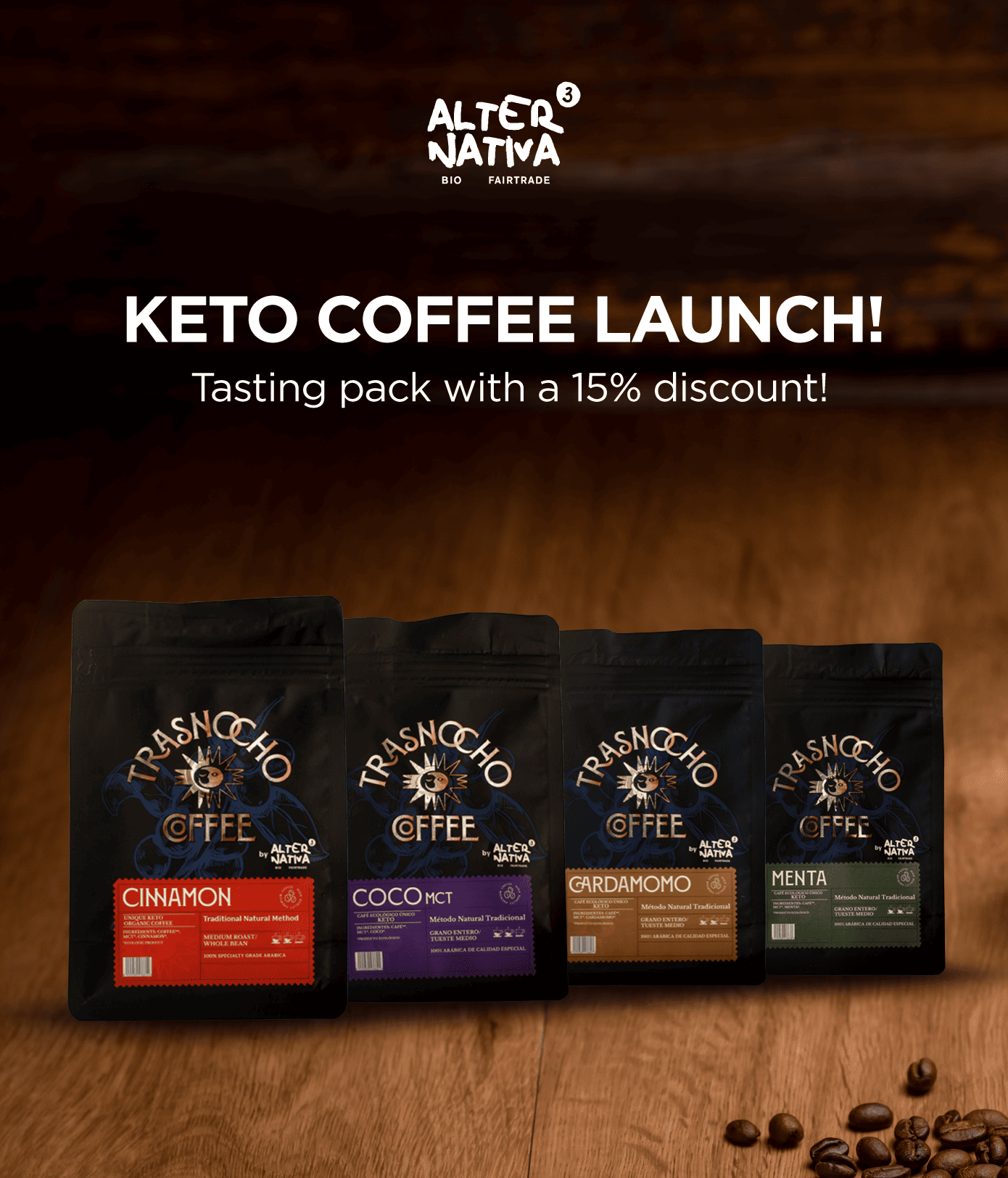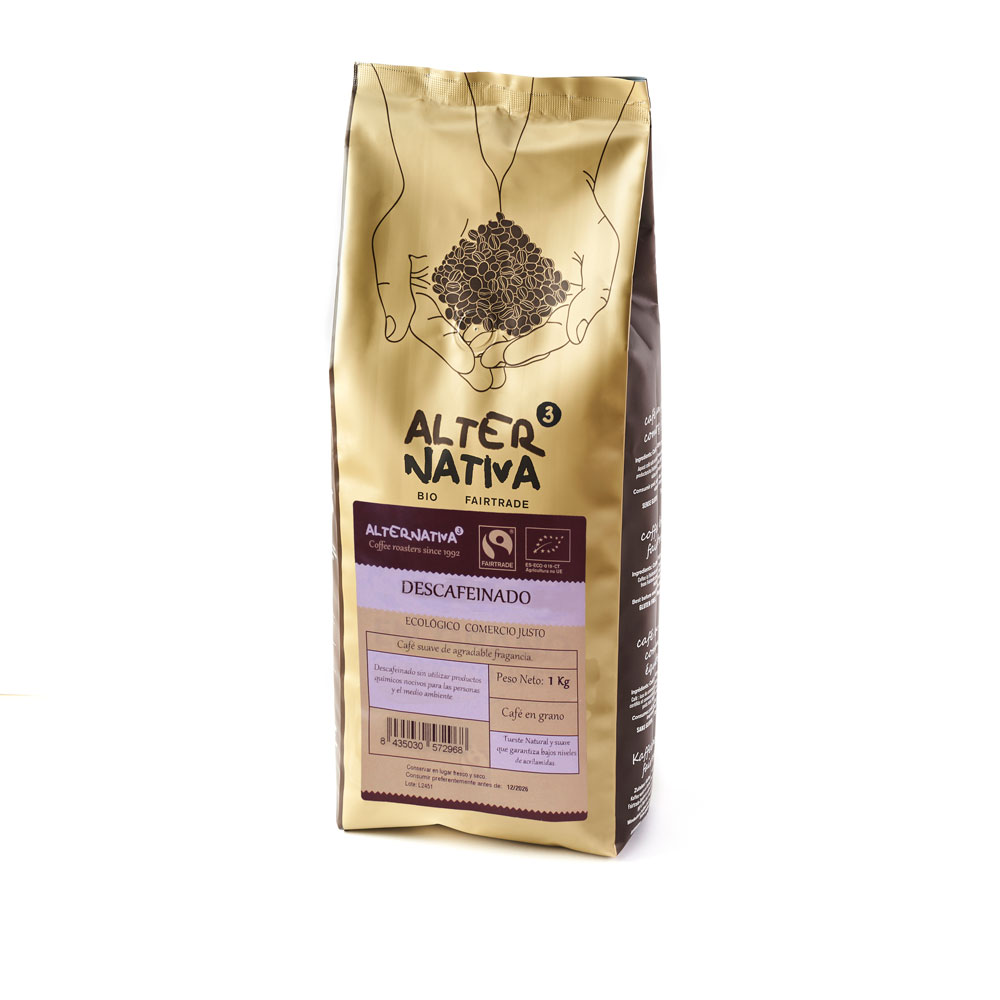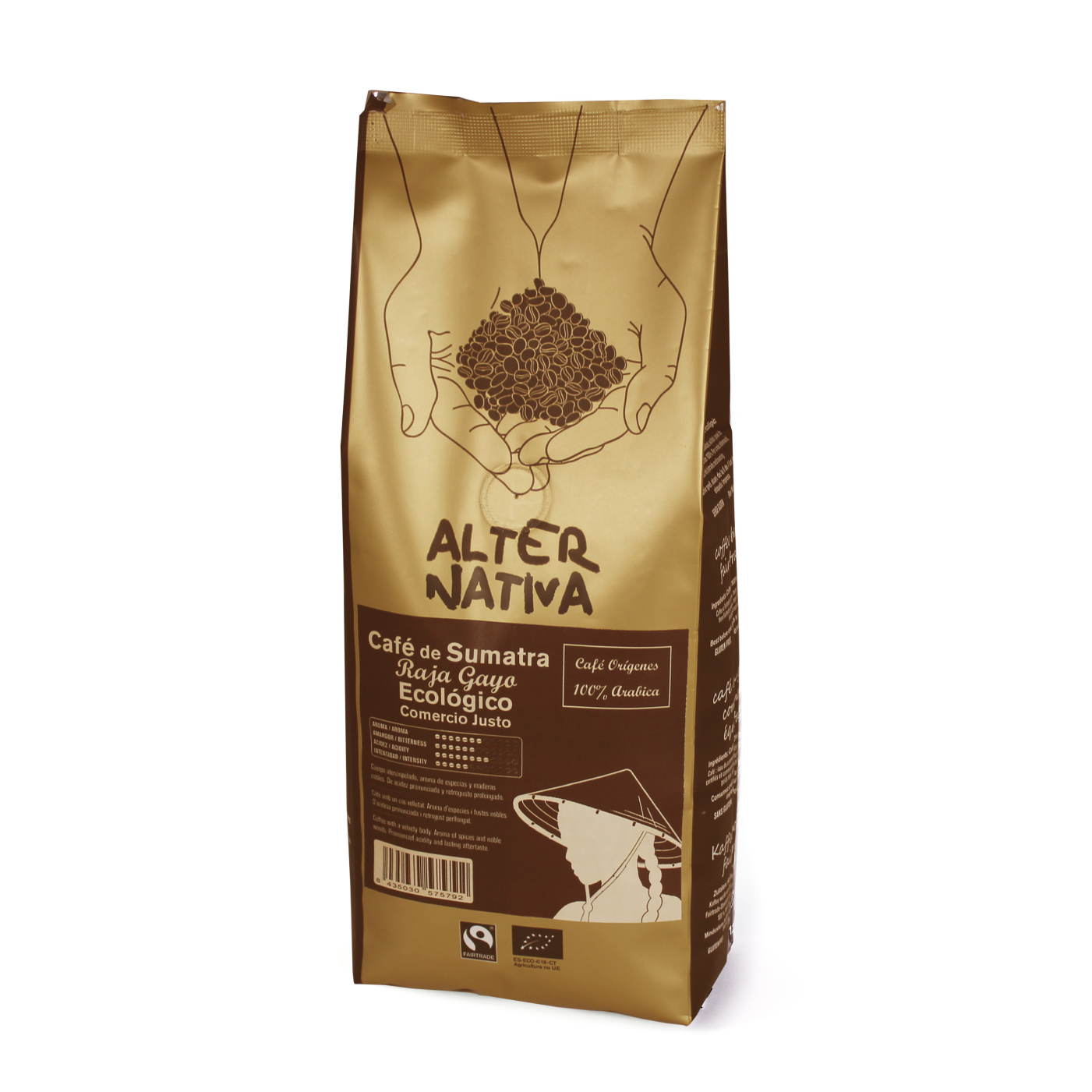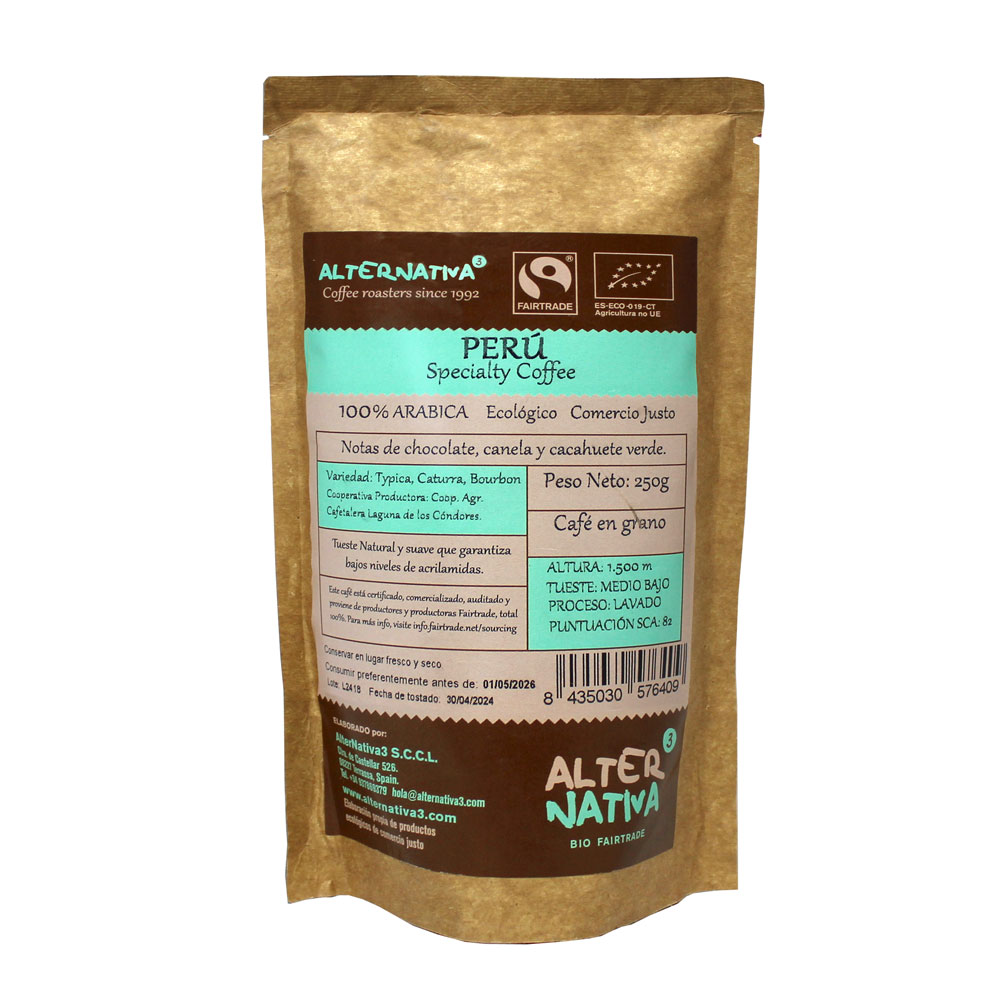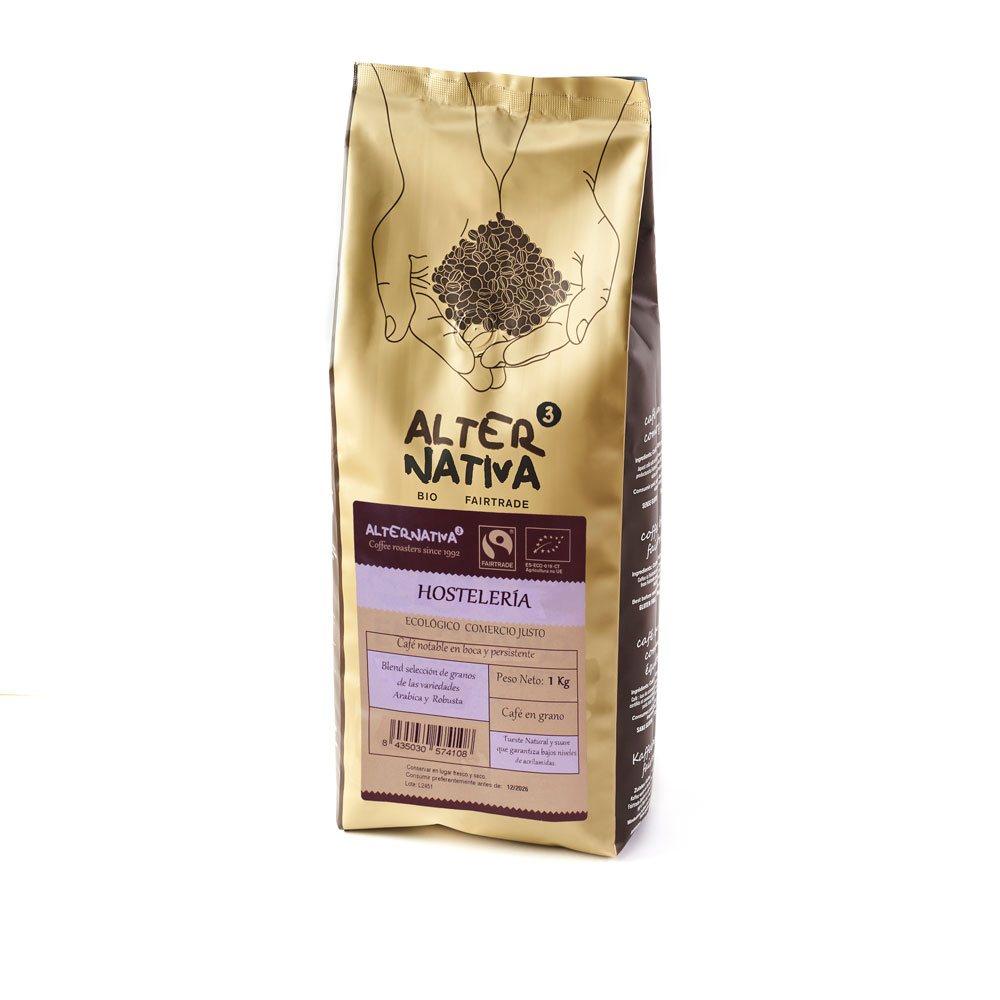Decaffeinated coffee beans BIO-FT. 1kg
35,29€
Characteristics of Organic Decaffeinated Coffee Beans
This naturally roasted 100% Arabica decaffeinated coffee bean stands out for its balance and smoothness. Thanks to its natural roasting and sustainable decaffeination process, it retains all its aroma and complexity of nuances.
Properties of Decaffeinated natural roast coffee beans
The arabica variety is distinguished by its smoothness and refined aromatic profile, qualities that remain intact in this decaffeinated coffee. The caffeine is removed through a natural process that preserves the original flavour and properties of the bean, offering an ideal alternative for those looking to reduce their caffeine intake without giving up the pleasure of a good cup of coffee.
Natural roasting is another key factor in its quality. By avoiding roasting processes with added sugars, a purer and healthier coffee is obtained, with a low level of acrylamides. This results in a healthier coffee with all its original flavour.
Fair Trade plays a key role in the production of this coffee. The cooperatives in the Global South that grow it receive a fair price for their work, which contributes to improving their living conditions and those of their communities. This model promotes the eradication of child labour, respect for labour rights and the development of local infrastructures.
By buying fair trade decaffeinated coffee beans you also support a more equitable and responsible system that benefits thousands of producing families.
How to make the best decaffeinated coffee beans
For maximum enjoyment of naturally roasted decaffeinated coffee beans, the espresso machine is the best choice. The pressure of this method brings out the coffee's nuances, enhances its aromas and creates a smooth crema with a rounder, more balanced body.
If you prefer a more intense and concentrated flavour, opt for a fine grind that extracts the maximum compounds from the bean. On the other hand, a slightly coarser grind softens the profile, bringing out its acidity and more subtle notes.
Alternatively, the Italian or mocha coffee maker also offers an aromatic and full-bodied cup, perfect for those who enjoy a coffee with character.
Discover the perfect balance between quality, sustainability and taste - order now and enjoy authentic Fairtrade coffee in every sip!
Carbon dioxide (CO2) treatment for decaffeinating coffee is one of the most advanced and environmentally friendly methods available today. This highly selective, cyclical process uses CO2 at high pressure to extract the caffeine from the coffee beans without compromising taste, aroma or colour.
Carbon dioxide is a natural and safe component, making the process completely harmless. In addition to removing caffeine, CO2 acts as a protector, preventing oxidation and preventing the appearance of unwanted flavours and odours, ensuring a high quality decaffeinated coffee.
One of the great advantages of this method is that it uses only natural elements. Unlike other decaffeination processes, it significantly reduces water consumption. This results in a totally ecological decaffeinated coffee, maintaining the purity and freshness of the coffee.
Decaffeinated organic Fairtrade natural roast coffee beans.
Fair trade is an effective tool for eradicating the poverty and inequalities generated by conventional international trade. Working for gender equality, the eradication of child labour and paying a decent price to the people who grow our ingredients, who organise themselves in cooperatives and make decisions in a democratic way.
Our cooperative is committed to social responsibility policies in all areas: with the producer cooperatives, maintaining long-term relationships; with the consumer, offering maximum quality and transparency; and internally, with policies of family reconciliation, team decision-making, environmentally sustainable surroundings and gender equality. Working in AlterNativa3 allows us to take part in the construction of a better reality in which people are above economic profit.
The producing cooperatives cultivate the products according to traditional, environmentally friendly techniques. No chemicals or artificial additives, which are harmful to health and nature, are used in the further processing.
